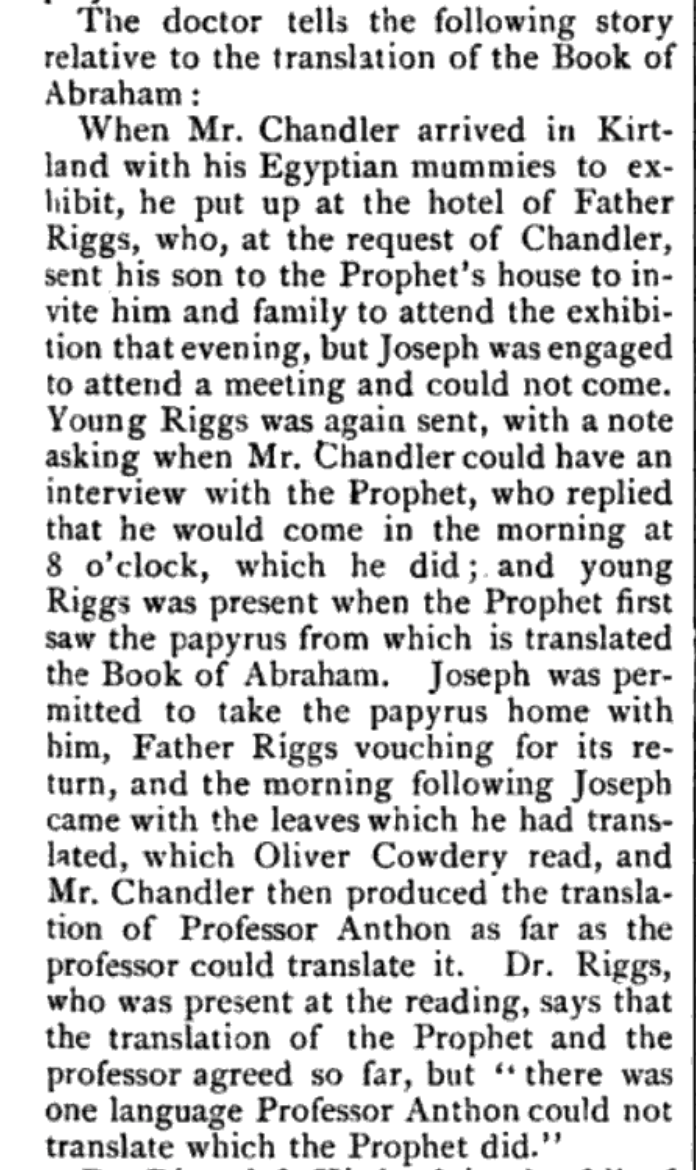Joseph provided a translation of papyri for Michael Chandler upon first examining papyri; is said to have matched Charles Anthon's own translation.
- Type
- Periodical
- Source
- Edward Tullidge LDS
- Hearsay
- Scribed Summary2nd HandLate
- Reference
Edward Tullidge, "History of Provo," Tullidge's Quarterly Magazine 3, no. 3 (July 1884): 283
- Scribe/Publisher
- Edward Tullidge
- People
- Edward Tullidge, Gideon Riggs, John R. Riggs, Charles Anthon, Michael Chandler, Oliver Cowdery
- Audience
- Reading Public
- Transcription
The doctor tells the following story relative to the translation of the Book of Abraham:
When Mr. Chandler arrived in Kirtland with his Egyptian mummies to exhibit, he put up at the hotel of Father Riggs, who, at the request of Chandler, sent his son to the Prophet's house to invite him and family to attend the exhibition that evening, but Joseph was engaged to attend a meeting and could not come. Young Riggs was again sent, with a note asking when Mr. Chandler could have an interview with the Prophet, who replied that he would come in the morning at 8 o'clock, which he did; and young Riggs was present when the Prophet first saw the papyrus from which is translated the Book of Abraham. Joseph was permitted to take the papyrus home with him, Father [Gideon] Riggs vouching for its return, and the morning following Joseph came with the leaves which he had translated, which Oliver Cowdery read, and Mr. Chandler then produced the translation of Professor Anthon as far as the professor could translate it. Dr. Riggs, who was present at the reading, says that the translation of the Prophet and the professor agreed so far, but "there was one language Professor Anthon could not translate which the Prophet did."
- Source Link
- https://www.google.com/books/edition/Tullidge_s_Quarterly_Magazine/lBXZAAAAMAAJ?hl=en&gbpv=1&dq
- Citations in Mormonr Qnas
The B. H. Roberts Foundation is not owned by, operated by, or affiliated with the Church of Jesus Christ of Latter-day Saints.

